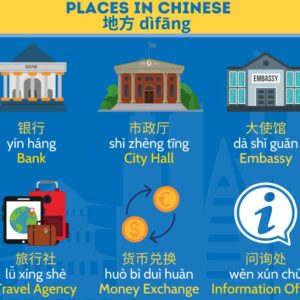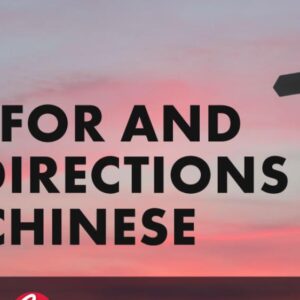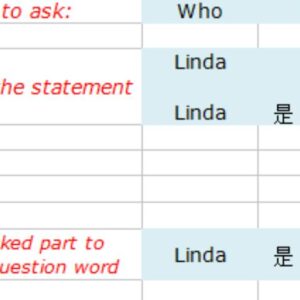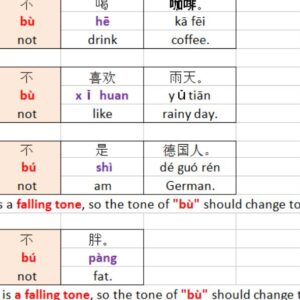How do you say hello in Chinese? Well, you might be surprised to know that there are numerous expressions used to greet in Chinese. In this article, we will undergo just how to say hello in Chinese both with Mandarin personalities, its Pinyin matching to aid your enunciation, as well as the English translation. Let’s dive right in as well as take a look at options to the infamous 你好! (nǐ hǎo), which, spoiler alert, isn’t commonly made use of among native Chinese speakers!
#1. Hello in Chinese formal
#1. 你好- Hello: the perfect start
It would be inconceivable to not mention 你好 nǐ hǎo which is the most common and most used expression to say hello in Mandarin. If you want to learn Chinese, you definitely need to learn this useful word and if you are, this was most likely one of the first things you learned. As 你 nǐ is the informal form of “you”, Chinese people use 你好 when they want to greet friends or acquaintances. But watch out, this expression is used to greet one person at a time!
For example if you run across a classmate of yours you can say:
同学你好 tóngxué nǐ hǎo Hello.
In Chinese, it doesn’t matter if you put the name/subject before or after the greeting rexpression.
You can also shorten the greeting session by just putting the name/subject before 好 hǎo good.
For example:
老师好 lǎoshī hǎo Hello teacher!.
#2. 您好 – Hello: to be the most polite Chinese learner
As we’ve just talked about the informal version of “you”, let me introduce to you the polite form of 你 nǐ you: 您 nín you. Imagine you want to say hello in Chinese to someone that is higher-ranked than you, let’s say your boss for instance, but also to elders, you’ll need to say 您好 nín hǎo hello to show your respect.
For example, when you meet someone’s grandfather, you have to say:
经理您好 jīnglǐ nín hǎo hello
, plus, they’ll be very pleased to hear you greeting them that way.
Note: The Taiwanese tend to use more 你好 nǐ hǎo than 您好 nín hǎo to greet people, even those they don’t know well.
#3. 大家好 – Hello everyone: to greet a crowd
You saw in the first way to say hello in Mandarin, that 你好 nǐ hǎo can only be used to greet one person at a time. But what if you’re with many people and you want to say hi in Chinese to everyone of them at the same time? It’s the right time to use the Chinese expression 大家好 dàjiā hǎo Hello everyone. ( 大家 dàjiā means everyone)
Let’s set the background, if you go to the bakery and there are many sellers and people inside, you can definitely say:
大家好 dàjiā hǎo Hello everyone
When greeting many people at a time, you can also say
你们好 nǐmen hǎo hello everyone
你们 nǐmen is the plural form of you so that works too.
Dialogue
Note: Typical greetings between associates
| A: 你 好 !
nǐ hǎo ! Hello! (Wish you a good day!) |
| B: 您 好 !
nín hǎo ! Hello! (The same to you!) |
Keep in mind: Typical greetings between instructor and also pupil
| A: 老 师 , 您 好 !
lǎo shī , nín hǎo ! Hello, teacher! (polite) |
| B: 你 好 , Sam !
nǐ hǎo , Sam ! Hello, Sam! |
Vocabulary
| 你 nǐ pron. you |
| 您 nín pron. you (respectful use: courteous, as opposed to informal 你) |
| 好 hǎo adj. good (in this lesson) |
Grammar
你 VS 您
nǐ nǐn
你(nǐ) means you (informal), as opposed to courteous 您.
The person spoken to or written to is around your age or social position, such as your classmates, colleagues, your junior.
您(nín) means you (polite) as opposed to informal 你.
The person spoken to or written to is older than you, such as your superior or your client.
Contrasting Examples:
| A: 奶 奶 , 您 好 !
nǎi nai , nín hǎo ! Hello, grandma! (polite) |
| B: 你 好 , Tom !
nǐ hǎo , Tom ! Hello, Tom! (informal) |
#2. Ways To Say Hello In Chinese at different times of a day
Other common greatings: How to say “Good Morning”, “Good Afternoon”, “Good Evening”in Chinese
早上好 / 上午好 – To start the day the right way
Tips: The word “早上”(zǎo shàng ) means morning, “好”(hǎo) means good.
早 上 + 好 = 早 上 好(Morning + good= Good morning)
zǎo shàng + hǎo = zǎo shàng hǎo
| A: 早 上 好 , 老 师 !
zǎo shàng hǎo , lǎo shī ! Good morning, teacher! |
| B: 早 上 好 !
zǎo shàng hǎo ! Good morning! |
下午好 – Good afternoon: the greeting for the tea lovers
Tips: The word “下午”(xià wǔ) means afternoon, “好”(hǎo) means good.
下午 + 好 = 下午好(Afternoon + good= Good afternoon)
xià wǔ + hǎo = xià wǔ hǎo
| A: 下 午 好 !
xià wǔ hǎo ! Good afternoon! |
| B: 下 午 好 !
xià wǔ hǎo ! Good afternoon! |
晚 上 好 wǎn shàng hǎo
Tips: The word “晚上”(wǎn shàng ) means evening, “好”(hǎo) means good.
晚 上 + 好 = 晚 上 好(Evening + good= Good evening)
wǎnshàng + hǎo = wǎn shàng hǎo
| A: 晚 上 好 !
wǎn shàng hǎo ! Good evening! |
| B: 晚 上 好 !
wǎn shàng hǎo ! Good evening! |
#3. Short and cool expressions to say hello in Chinese
喂 | Wéi | Hello: used when answering the phone
This expression is only used in one situation – when answering the phone. Just like when English speakers say “hello?” when they first pick up the phone, you can say 喂 (wèi) in Chinese expecting that the person on the other end identifies themselves.
哈罗 | hāluó | Hello: the one that sounds familiar
If you ever go to a Chinese speaking country, this is what is most commonly heard among young people. If you listen to its pronunciation, you’ll notice it sounds like “hello” in English. In fact, 哈罗 (hā luō) is a loanword the Chinese borrowed from English.
嗨 | Hāi | Hi: to sound cool in Chinese
Young people are very creative, here’s another expression to say hello in Chinese you can use when talking to young people, or people of your age to show how cool you are. 嗨 hāi Hi is also a loanword the Chinese borrowed from English, if you say it out loud you’ll hear it sounds just like the English word Hi.
嘿 | Hēi | Hey!
Like 嗨 above, 嘿, or “hēi” in pīnyīn, is a loanword taken from English. It’s modeled off of the sound and meaning of the informal English greeting “hey.”
Like 嗨 (hāi), 嘿 (hēi) is often used among young people in urban areas to informally greet friends or other people of a similar age. It can also be used in written form on social media.
哈喽 | Hālóu | Hello!
Like 嗨 (hāi) and 嘿 (hēi) above, 哈喽, or “hālóu” in pīnyīn, is a loanword from English. Note that the characters for 哈喽 are sometimes also written as 哈啰.
This greeting is modeled off of the English greeting “hello,” and sounds quite similar. It’s also an informal, somewhat playful greeting.
Most commonly, it’s used by young urbanites both in person and occasionally online to address their peers.
#4.Current expressions to greet people in Chinese
好久不见 !- Long time no see!: the greeting sentence for old friends
Old friends can be separated by life’s duties, their jobs, their family, or hobbies, but once they gather together, it’s like they’ve never been away from each other that long. If that happens to you with a Chinese friendn, you can tell them 好久不见 ! hǎojiǔ bújiàn! Long time no see!. It’s a nice greeting for a very good friend. And yes, some suspect the English expression Long Time No see was borrowed from Chinese.
最近过得怎样呀?- How has been life recently?
The expression 最近过得怎样呀? zuìjìn guò dé zěnyàng ya? How has been life recently? can also be translated by “How are you?” in English, as the same kind of answers are expected. For example when you meet one of your friends you haven’t seen in a little while, they can ask you 最近过得怎样呀? zuìjìn guò dé zěnyàng ya? How has been life recently? you can answer several things:
- 挺好的。 tǐng hǎo de. Quite good.
- 还不错。 hái búcuò. Not bad.
- 一般般。 yì bān bān. Just so so.
- 不太好。 bù tài hǎo. Not good..
吃了吗?- Have you eaten ?: how food got involved in the greetings
Asking someone if they have eaten can seem like a weird question but it’s actually, a well known and popular expression to say hello in Chinese. Wait. To say hello? Absolutely. In China, eating is extremely important and therefore inquiring whether someone has eaten or not 吃了吗? chīle ma? Have you eaten ? gradually became a perfectly normal way of asking “How are you?” in Chinese. Whenever someone asks you
吃了吗? chīle ma? Have you eaten ?, just say 吃了 chīle I’m fine (literally I’ve eaten) and ask them back 你呢? nǐ ne? And you? They’ll be glad to be asked so.





